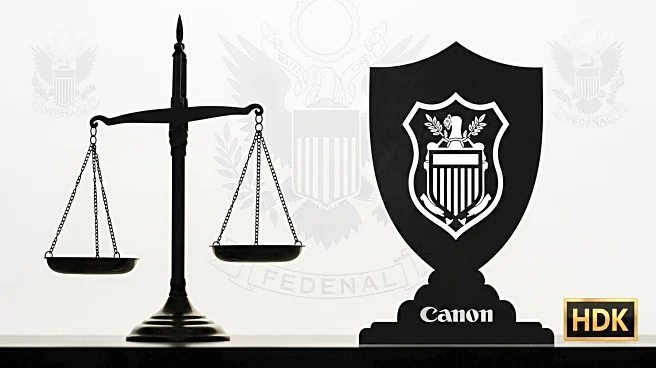What is the story about?
What's Happening?
The state of Illinois and the city of Chicago have filed a lawsuit to prevent the federalization and deployment of the National Guard by President Trump. The lawsuit argues that the deployment is unjustified and violates the Posse Comitatus Act, which restricts the use of military forces in domestic law enforcement. The complaint highlights that there is no insurrection or rebellion in Illinois that would warrant such federal intervention. The legal action follows President Trump's authorization to deploy 300 Illinois National Guard troops to Chicago, citing the need to protect federal officers and assets amid what he describes as violence and unrest in the city. The lawsuit also references a recent federal court ruling that blocked a similar deployment to Oregon.
Why It's Important?
This legal challenge underscores the tension between federal and state authorities over the use of military forces in domestic affairs. The outcome of this lawsuit could set a precedent for how the federal government can engage with state National Guards, particularly in politically contentious situations. If Illinois succeeds, it may embolden other states to resist federal interventions perceived as overreach. Conversely, a ruling in favor of the federal government could expand executive power in deploying military resources domestically. The case also highlights broader debates about the balance of power between state and federal governments, especially in the context of immigration enforcement and civil unrest.
What's Next?
The lawsuit will proceed in federal court, where a judge will decide whether to issue an order blocking the federalization of the National Guard in Illinois. The decision could influence similar cases in other states and impact the Trump administration's approach to deploying military forces domestically. Stakeholders, including state governments, civil rights organizations, and federal agencies, will be closely monitoring the case. The ruling could also affect public opinion on the use of military forces in civilian contexts, potentially influencing future policy decisions.
Beyond the Headlines
The legal battle raises questions about the ethical implications of using military forces in civilian settings, particularly in cities with significant immigrant populations. It also touches on cultural and historical resistance to military involvement in domestic affairs, reflecting a longstanding American tradition of civilian control over the military. The case may prompt discussions about the role of federal agencies in local law enforcement and the protection of constitutional rights in the face of federal interventions.














